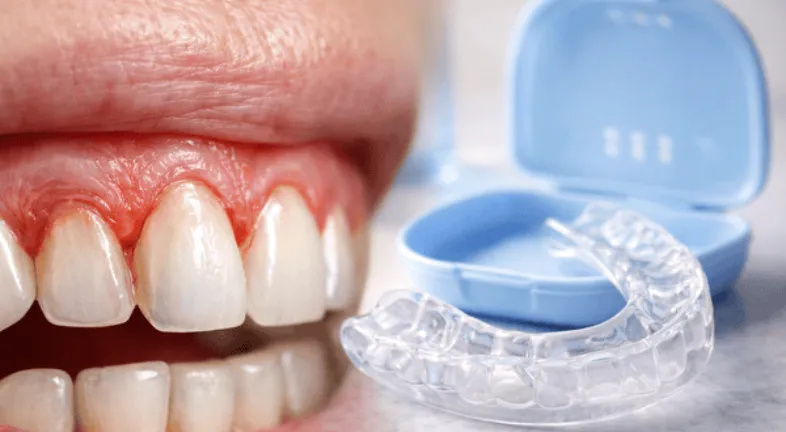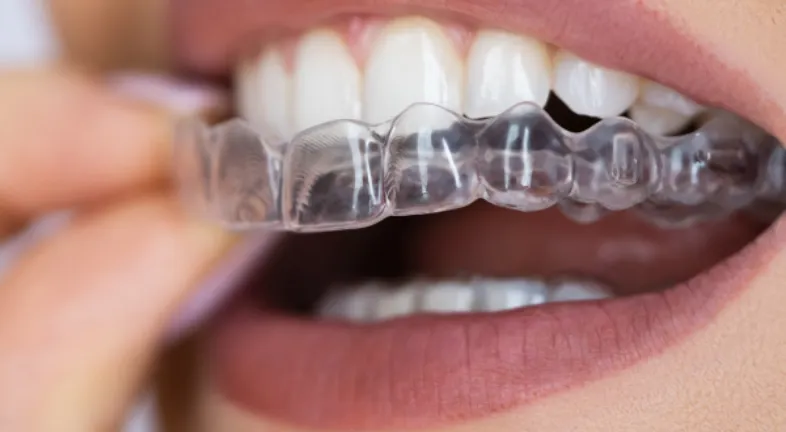
Table of Content
As time goes on, our mouths go through a lot of changes. One significant dental milestone is the emergence of wisdom teeth, also known as the third molars. They’re the large teeth at the back of the mouth and are the last to grow in, typically surfacing during our late teens or early twenties. Wisdom teeth can be beneficial for chewing when they’re healthy and appear in the correct position, but if they don’t have enough space to grow or are in the wrong place, they can cause us many problems.
Turn back the clock hundreds of thousands of years to the time of our early human ancestors, and wisdom teeth played an important part in survival and helped people chew. They were handy backups when other teeth were decayed or damaged. The early human jaw was much bigger than ours and could easily accommodate wisdom teeth. The average jaw today doesn’t have sufficient space for these molars.
A problematic wisdom tooth may lead to an infection called pericoronitis, which is characterised by inflammation or swelling of the gum tissue around wisdom teeth. According to a recent study, pericoronitis affects approximately 81% of people aged 20-29 years.
Pericoronitis can develop when wisdom teeth have failed to come through or have only partially broken through the gum. This state of affairs often leaves a flap of gum tissue. Food particles and other debris get trapped here, and it becomes an ideal breeding ground for bacteria. The space between wisdom teeth and the back of the mouth is easy to miss when brushing and flossing, so the bacteria increase in number unmolested.
An overgrowth of several types of bacteria can cause an infection in and around a wisdom tooth. Additionally, the bacteria create a film over the teeth known as dental plaque. When the food and drink we consume have a high sugar content, the bacteria in the plaque break down the sweet stuff into an acid that makes holes in teeth, which can become infected.
Here are some of the symptoms you need to look out for:
If you think you have a wisdom tooth infection, you should contact your dentist immediately.
A wisdom tooth infection will not go away on its own. It is essential to treat the condition immediately to stop it from getting worse. The type of treatment varies between cases according to the severity of the infection. Treatment options can include:
If the infection is in a small area and hasn’t spread, a thorough cleansing of the wisdom tooth and surrounding gums and an oral rinse may be sufficient. Your dentist may also recommend an antibacterial mouth rinse to help clear up the infection.
If your cheek, jaw, and teeth are painful, your dentist may treat the infection with antibiotics. This is usually penicillin unless you’re allergic. They may also prescribe pain relief medication.
If the pain and inflammation are severe, the dentist can perform oral surgery to remove the gum flap or extract the wisdom tooth. According to the NHS, wisdom tooth removal is one of the most common surgical procedures in the UK.
Therefore, your dentist may advise this option to deal with a wisdom tooth infection.
You can’t prevent wisdom teeth from growing, but there are things you can do to avoid a wisdom tooth infection. These include:
Poor oral health and postponing your teeth straightening journey may lead to a host of other oral issues, not just infections. These can include gum recession, jaw problems and difficulty chewing.
Whether or not you have wisdom teeth, you can use affordable clear aligners such as those provided by Caspersmile to straighten your teeth and make it much easier to care for them. You can even undergo teeth straightening when wisdom teeth are coming through.
Did you know that you’re never too old to straighten your teeth? If you want to know more about the dental health benefits of aligners and are ready to start your clear aligner journey, get started with a free assessment today.
Curated the best for your knowledge
.webp) Cavities: Why Cleaning Your Essix Retainer Is Important
Cavities: Why Cleaning Your Essix Retainer Is ImportantCavities do not usually start with pain; they begin quietly. A thin film of plaque forms, bacteria settle in, and before you realize it, enamel has started to weaken. The risk of cavities often increases when you wear oral appliances like Essix retainers. However, the retainer itself is not the issue; improper maintenance and neglecting cleaning are the main culprits. If you have invested in orthodontic treatment, whether traditional braces or clear aligners, your retainer is what protects that investment. But an unclean one just makes matters worse. So, let’s walk through this guide to understand why cleaning your Essix retainer is important.
Read More Can Mouthguards Cause Gum Recession
Can Mouthguards Cause Gum RecessionMouthguards are usually seen as the “good guys” of dental care. They protect teeth from grinding, cushion heavy bites, and help prevent long-term damage. So when someone notices sore or receding gums while wearing one, confusion sets in fast. Can mouthguards cause gum recession, or is something else going on? The honest answer isn’t a simple yes or no. Gum recession almost never has one single cause. It’s usually the result of pressure, inflammation, habits, and time all working together. Mouthguards can sometimes contribute to irritation, but in many cases, they’re actually helping prevent worse damage. Understanding the difference matters more than blaming the device.
Read More How to Clean Essix Retainers
How to Clean Essix RetainersIf you wear Essix retainers, commonly known as clear retainers, you already know they are both amazing and annoying. Essix retainers are nearly invisible, lightweight, and comfortable. At the same time, they stain easily, hold onto odors, and can appear questionable if not properly cared for. Cleaning Essix retainers sounds simple. Rinse, brush, done. But if you’ve ever pulled yours out of its case and wondered why it smells off or looks slightly yellow, you already know there’s more to it. In this blog, we will guide you through how to clean Essix retainers properly, what to avoid, how often to clean them, and why they change color over time.
Read MoreQuick Links

Heading